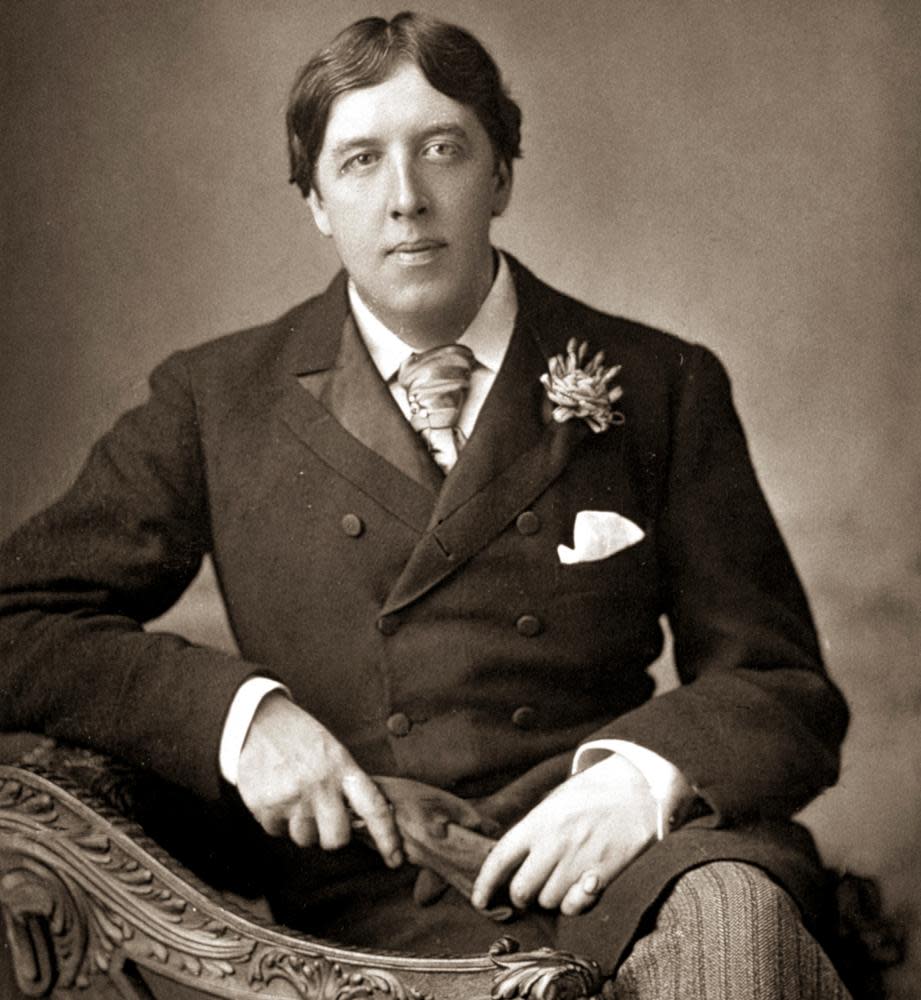New theatre in Reading opens with modern take on Oscar Wilde play
A new theatre is to open in Reading this autumn with a “radical modern take” on The Picture of Dorian Gray by Oscar Wilde, who was imprisoned in the city several years after its publication.
Dorian, written by Phoebe Eclair-Powell and Owen Horsley, will be staged in October by Reading Rep in the company’s new permanent home, converted from a red-brick Salvation Army hall after a two-year campaign that raised over £1m. The building is designed by David Hughes, the architect behind Park theatre, which opened in north London in 2013.
The new arts hub in Reading will include an 180-seat theatre, rehearsal space, an education and learning centre and a cafe and bar. Unlike the “glorified shed” where Reading Rep started out, it will also benefit from its own box office, front of house and toilets, added artistic director Paul Stacey, who is pleased to be moving the company into a new home without a leaky roof.
Stacey founded the company with his overdraft in 2012 in a bid to “put Reading on the national cultural map”. Their shows regularly sold out their 60-seat venue and he has long waited for a home to fit its growing stature. The new theatre will provide a year-round space devoted to its Engage programme for those who have least access to the arts. Stacey said the company also plans to support “other local arts organisations to create a flourishing cultural scene in Reading”.
The new theatre will open with a gala night in September featuring work by its three associate companies, A Girl Called Stephen, Make/Sense Theatre and Exit Pursued By Panda. Dorian, directed by Horsley, will be accompanied by the participation project Made in Reading, exploring Reading’s LGBTQIA+ history and Wilde’s imprisonment in Reading.

Its opening season will include Gary McNair’s new adaptation of Robert Louis Stevenson’s Jekyll and Hyde, directed by Stacey; the family show Alby the Penguin Saves the World, written and directed by Helen Eastman; and A Midsummer Night’s Dream directed by Stacey and Christie O’Carroll. Stacey will also directed A Christmas Carol this winter, in a new adaptation by local playwright Beth Flintoff.
In summer, Flintoff’s play The Last Abbot will be staged inside Reading Abbey by Rabble Theatre. It tells the story of the relationship between Henry VIII and Hugh Cook of Faringdon, the last abbot of Reading.
In 2020, the Ministry of Justice rejected a separate bid to turn Reading prison, where Wilde was jailed for two years in 1895, into an arts centre. A new council-backed bid for it to become a cultural centre has gained prominent support. Last year, Judi Dench said the site should be used in a way that pays tribute to its artistic history: “The idea of plays being performed, people learning and enjoying themselves, and a community coming together in a space that represented so much sadness and inspiration for Oscar Wilde himself is a beautiful one.”
Wilde reflected upon his imprisonment in The Ballad of Reading Gaol (1898), where he wrote: “Each narrow cell in which we dwell / Is a foul and dark latrine, / And the fetid breath of living Death / Chokes up each grated screen.”

